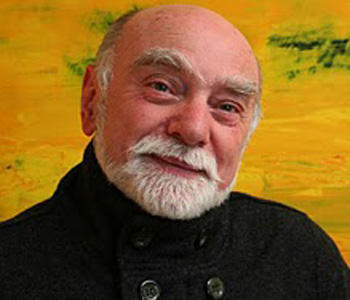Brian Boyd
Why Lyrics Last: Evolution, Cognition, and Shakespeare's Sonnets
Harvard University Press
240 pages, 5 1/2 x 8 1/4 inches
ISBN 978 0674065642
Why do all cultures have verse? Why nevertheless, is poetry a minority taste, unlike stories, even among keen readers of literature? And why, all the same, does some verse succeed in touching hearts and minds across the centuries?
What distinguishes poetry from prose, anyway, and why does that make a difference to its demands and delights? What is special about lyric verse, verse without stories? How can what we know of the mind explain the particular challenges and rewards of lyrics?
After I raise these questions in general terms, and try to answer them from evolutionary and cognitive viewpoints—more of this in a moment—I move on to Shakespeare. His Sonnets rate as the most successful of lyric collections, and ten or perhaps twenty of the poems are dear to lovers of English literature. Yet very few people read the sequence right through. What do both the sonnets’ appeal at their best, and the resistance they offer to sustained reading, tell us about lyrics in general and about Shakespeare’s aims in this extraordinary collection?
Here’s the start of my answer: We can understand the abundant information in the world rapidly, in real time, only if it falls into patterns.
Narrative seems highly likely to be the default task orientation of the human mind: that is, if our minds can process information patterns in narrative terms, if they can interpret as events what they experience, they automatically will. Narrative organizes experience as naturally as a magnet organizes iron filings. Stories appeal so widely partly because their principal patterns usually converge so effortlessly. They also hook attention by providing their own internal sense of relevance: Hamlet’s or Elizabeth Bennet’s aims, for a time, become ours.
Lyric poetry can turn the absence of story to advantage. Precisely because it resists the automatic convergence of patterns that we normally meet in narrative, it can explore patterns of its own, patterns of experience and emotion, of image and idea, of word and structure, of set forms and found freedoms. Because lyric poetry lacks the internal relevance a story supplies, it allows us the illusion of access to another’s thought at its least constrained by circumstance, appealing to others regardless of their circumstances. And since a lyric forfeits the supplied circumstances of a story, it invites an expansively resonating response, appealing to our imaginations to intuit the relevance, whatever our circumstances might be.
The freedom and intensity of high lyric verse tend to offer greater challenges than stories, and different kinds of reward. That’s why I try to show how thoroughly Shakespeare’s purposes in his Sonnets—which suggest but strongly resist narrative—differ from those of his plays and his once wildly successful narrative poems.
In On the Origin of Stories I asked why we are storytelling and especially fiction-making animals. It’s a fat book, a fairly comprehensive book. But to be truly comprehensive about literature you also have to take in verse, not just fiction. Verse forms the other main strand of literature, sometimes connected with fiction, sometimes not. In Why Lyrics Last—a much leaner book, this time—I turn evolutionary and cognitive lenses on verse, and especially on verse without narrative.
In On the Origin of Stories I suggested that storytelling, like art in general, is adaptive: that is, that we have evolved to be storytelling and art-making animals because stories and art offer us benefits, even in the hard currency of survival and reproduction.
I proposed that we can find the common features of all the arts if we understand art as cognitive play with pattern. Art, I suggest, derives from animal play, but it reflects the unique importance of cognitive rather than physical skills to humans, and the importance of pattern in understanding information. Just as other animals have evolved to engage in physical play, we have evolved to engage in the open-ended cognitive play with pattern that we call art, in our key information modes: sight, in the visual arts; sound, in music; movement, in dance; sociality, in fiction; and language, in verse.
Just as animals move better through physical space thanks to the simulation of play, we move better through mental spaces thanks to the simulations of art.
I didn’t know what I’d find when I asked myself what an evolutionary perspective might bring to verse, or how different the answers might be to those I found when I asked about fiction. Since inquiry feeds off examples, I also wondered how might an evolutionary perspective make a difference to the most successful of large-scale lyric projects. Or, perhaps, to the most problematic of lyric projects.
Curiously, Shakespeare’s Sonnets fits both bills. The Sonnets sell more copies than any other Shakespeare work, and they also attract more criticism than any other except the notoriously enigmatic Hamlet—and more crackpot theories than perhaps any other literary work whatsoever.
I had no idea what I would discover about lyric, and about the Sonnets, except that the idea of pattern would probably play a key role. As it happened, Shakespeare’s purposes wonderfully clarify the distinction between narrative and lyric—a boundary the poet seems to play on and probe throughout—and the singular achievement of the Sonnets.
When did you last immerse yourself in a pool of make-believe? In a television drama, or a film, watched from the sofa or a cinema seat? A story you read to your children last night, or the novel you settled down with later? The comic strip in this morning’s newspaper? A joke you heard at work or around the table? Chances are that the last fictional story you encountered was not long ago, and the previous one not long before that.
When did you last encounter verse? Again, probably not long ago, in song or hymn lyrics or in advertising jingles. Had you lived in Homer’s day, or in Virgil’s, Dante’s, or Chaucer’s, or even in Shakespeare’s or Byron’s, you might have met story and verse together; but more recent ways of telling stories on page and screen make you unlikely to reach for verse when you crave a story. And when did most of us who are not poets or literature teachers or students last read a serious poem, or a book of poems?
“Poetry” has no rhyme in English. Even for many literature students, the first near-rhyme for “poetry” to leap to mind might well be “lavatory,” somewhere they’d rather not linger. They just don’t “get” poetry, they confess: verse, what could be worse?
Yet even those who profess not to understand poetry enjoy rhymes in rock songs, punchy rhythms in rap, playful alliterations and puns in advertising and headlines. They and others enjoyed nursery rhymes, schoolyard chants and rhyming games when they were children, and will pass some of them on to their children.
Like others, I feel confident we can learn more about literature and life by discovering more about the why and how of our minds. How might evolution (the why) and cognition (the how) explain why we love the ingredients of poetry but why so many find the whole dish of literary poetry a little heavy, oversauced, hard to digest? And why despite that do some poems invite endless re-savoring?
I hope Why Lyrics Last might encourage those who have resisted poetry to recognize that they are not alone, that they already like a great deal of what goes into poetry, and that they can learn to like even tricky lyrics.
Shakespeare’s Sonnets offer a great place to start: some obviously, immediately, compellingly appealing; others puzzling in themselves and their relations to those before and after. If you don’t read them with the wrong expectations—that they are narrative, a narrative you’re just not getting—you can find different kinds of surprises and pleasures, some immediate, others delayed until you reread and re-savor.
Like many a lyric poet, Shakespeare can make his sonnets a series of hide-and-seek games. Accept the invitation to discovery and you have a chance to explore intimately, even across centuries, the recesses of an extraordinary mind.
I began On the Origin of Stories with evolution and cognition. In Why Lyrics Last my strategy shifts. I focus on literary problems here not to construct a comprehensive biocultural model, but simply to draw on evolutionary and cognitive insights as they illuminate this or that, often in unexpected ways. For instance: the imbalance in number and size between sperm and eggs underlies—not that they knew it—the structure of the sonnets sequences that Shakespeare and his contemporaries inherited from Petrarch, and the problems inherent in the form, and the boldness of Shakespeare’s solutions in refreshing the form.
And this in turns leads into a wider issue: the role of problems and solutions, and costs and benefits, in literary studies—and indeed wherever we try to understand what people do.
Problems emerged with life, and evolution tracks successions of accumulated solutions. Each individual too faces a partly common, partly unique set of problems: for a writer, what to write next, for instance, how to hold an audience’s attention, and how to keep down the invention costs of a new composition while amplifying the benefits.
Shakespeare was in a unique position when he began writing his sonnets. He had already set new standards in comedy, tragedy, and history, and in comic and tragic narrative verse, when he turned to lyrics to show what he, and poetry, could do without narrative.
Shakespeare had also recognized that sonnet sequences’ very mode of earning attention also threatened their lasting hold on readers. He alone among his contemporaries found ways of writing a sonnet sequence bold enough and sly enough to earn readers’ attention—and puzzlement—for centuries.
As readers too we face problems when choosing what to read next, what’s worth our attention in the face of competing demands, how to maximize the benefit to us of what we read while keeping the costs acceptably low. Understanding the problems facing particular writers at particular moments can help reduce the cost and raise the benefit of reading their work.
I’ve tried to make it more possible for readers of lyrics and readers of Shakespeare’s sonnets to see what lyrics in general, and the Sonnets in particular, do, and why. What are the problems good lyric writers and readers set themselves? How does understanding the special problems Shakespeare posed himself in his one lyric collection allow us to keep finding richer solutions to both the most admired and the most neglected of his sonnets?




We don't put paywalls. We don't distract you with ads. We don't sell your data.
Please help to keep this running!